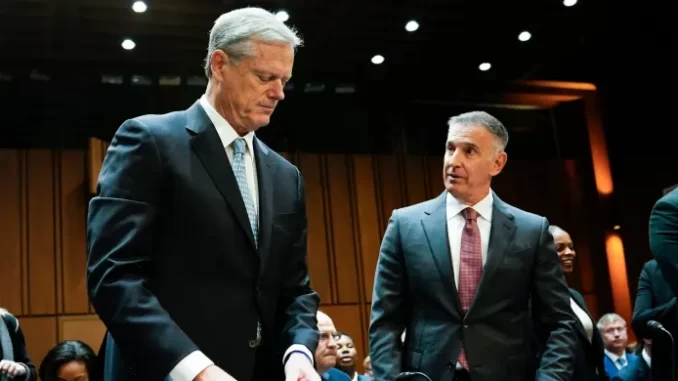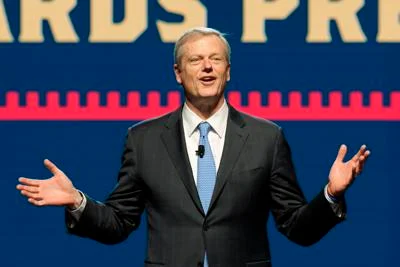
Charlotte Yeskulsky | Writer
January 16, 2024
NCAA President Charlie Baker has put forth a groundbreaking proposal that could reshape how student-athletes are compensated within the Division I framework. According to Baker’s plan, a new competitive subdivision would be established, requiring schools to invest a minimum of $30,000 annually into an enhanced educational trust fund for at least half of the institution’s eligible student-athletes. While the details of how athletes would access these funds are determined by the schools, the proposal opens the door for a significant shift in how the NCAA allows compensation for sports participation.
Baker’s plan suggests a collaborative effort among schools in the new subdivision to create rules that might be different from those of current Division 1. These rules could encompass various aspects, including scholarship commitments, roster sizes, recruitment, transfers, and policies related to athletes profiting from their name, image, and likeness (NIL). For example, CBS reported that, “member schools could conceivably raise the football scholarship limit from 85 to 95.” Additionally, he proposes that any Division I school, at its discretion, can enter into NIL licensing opportunities with student-athletes.

While there has been much criticism and also support for Baker, one clear thing is that his proposal will take much time before becoming a reality. The number of lawsuits and legal hoops Baker will have to jump through makes this not such an easy task. While it has been reported that the majority of NCAA members support Baker, he’s going to need a lot more. Baker’s proposal comes amid ongoing debates about athlete compensation and, “a push for federal legislation addressing antitrust challenges,” while specifying that athletes cannot be considered employees of their schools. While beneficial for the student-athletes, the trust fund presents a few potential problems. One of the biggest concerns is that the average school would have to come up with what several administrators have “estimated to be at least $6 million out of their budget” (CBS). Along with a concern about where this money will be coming from, there is also a question of who will be the recipients of this money. As stated in his proposal, only half of the student-athletes at each school in the Power Five Conference will receive money. With Title IX hanging over his head, this begs the question of how the money will be fairly divided.
Talking with Camille Brophy, a junior on the girls’ varsity soccer team, she was “excited for what opportunities this brings for future athletes in the Power Five Conference” and believed that “this is the future of where the NCAA is headed.” Recently committing to play Division 1 soccer at the University of Oregon, Brophy may just be one of the many student-athletes affected by Bakers’ proposal. Junior Makenna Wood also had some thoughts on this idea and questioned the “separation this would cause within the NCAA” as she is committed to Chico State herself.
As we contemplate this revolutionary concept, the question arises: will Baker’s proposed changes be implemented, and how will these changes reshape the landscape of the NCAA as we know it today?

Leave a Reply